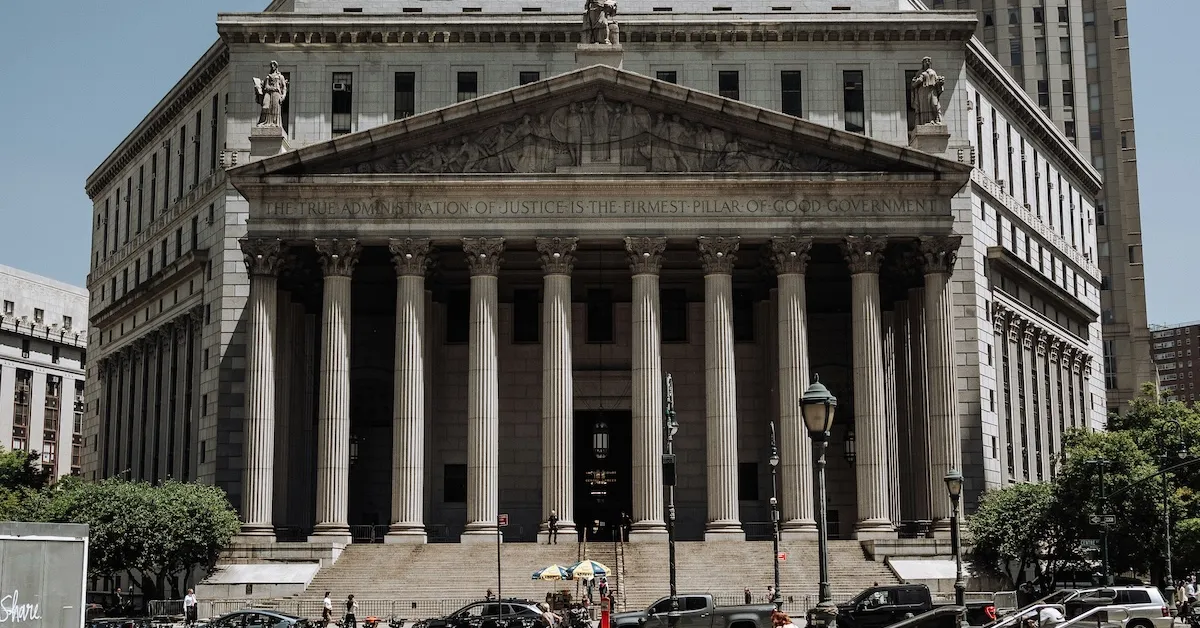Bitcoin Magazine
Takeaways from the Final Tornado Cash Status Conference Hearing
Today, the Southern District of New York (SDNY) hosted a final status conference hearing for the Tornado Cash case, the trial for which begins this Monday, 7/14.
The hearing was held virtually, and attendees included Judge Katherine Polk Failla (the judge presiding over the trial), Tornado Cash co-founder Roman Storm, and members of the defense and prosecution.
Storm is facing three charges: conspiracy to commit money laundering, conspiracy to operate an unlicensed money transmitting business, and conspiracy to commit sanctions violations.
The main topics discussed in the hearing included:
- the grounds for the New York court becoming the venue for the trial
- Storm’s influence over a Bloomberg reporter who reported on Tornado Cash in March 2020
- whether or not all actions by the Tornado Cash co-founders and developers to keep Tornado Cash running furthered the conspiracies in Storm’s indictment
- the admissibility of the data extracted from Tornado Cash co-founder Alexey Pertsev’s phone
- how Judge Failla plans to focus more on how Storm ran a for-profit business than the details of the Tornado Cash’s crypto mixing software itself
Before engaging on these topics, Judge Failla shared some key details about the trial’s proceedings.
Details about the Trial
The trial will begin Monday morning at 9:30 AM EST, and one of the first items on the docket is jury selection.
Judge Failla noted that the trial will not be recorded, broadcasted, or rebroadcasted. (I’ll be there to cover most, if not all, of it, though!)
She also stated that she’d like to see the trial concluded within three weeks, though she added that she doesn’t think it will be and that she may need to take some time off from the trial in early August to celebrate her sick mother’s birthday.
What is more, Judge Failla stated that opening statements won’t be made until Tuesday, 7/15.
Why the Tornado Cash Trial Is Being Held in the SDNY
According to the prosecution, the trial is proceeding in the SDNY because Storm operated a website that facilitated Tornado Cash transactions from New York City for a period of time.
The prosecution argued that Storm also frequently communicated with one the venture capital (VC) principals who funded Tornado Cash and who was also based in New York City at the time.
The prosecution added that Storm made frequent requests from this VC principal and that the requests were not only related to funding.
Storm ‘Corrected’ a Bloomberg Reporter
The prosecution explained how, in March 2020, Storm contacted a Bloomberg reporter who’d written a story on Tornado Cash to get the reporter to change the story so that the coverage wouldn’t have the authorities perceive Tornado Cash in a negative light.
They argued that Storm’s speaking with the reporter and convincing said reporter to alter the story “made the story inaccurate.”
The defense pushed back, stating that Storm only contacted the reporter to ensure that “appropriate corrections” were made to the story.
Storm did not speak to this matter in the hearing.
All in Furtherance of the Charged Conspiracies?
The prosecution floated the notion that all of the efforts that Storm and his co-founders made in operating their for-profit business that utilized the Tornado Cash technology furthered all of the conspiracies with which Storm has been charged.
One of the efforts that the prosecution cited was Storm and his co-founders encouraging U.S.-based Tornado Cash users to use the service, thereby creating a bigger pool of capital for the money that North Korean hackers put through the software to mix with (making it easier for the funds to be anonymized).
The judge pushed back as the prosecution made this argument, asking the prosecution to clarify whether or not it it believed that anything the Tornado Cash co-founders did to keep their business afloat furthered the conspiracies with which Storm has been charged.
This gave the prosecution pause, and, in this moment, one of the defense attorneys moved to dismiss the indictment against Storm due to a lack of venue.
The judge hastily denied the motion before claiming that such a request had frustrated her so much so that it was causing her to “break out in hives.”
Graykey Progress Report
Throughout the hearing, Judge Failla brought up the Graykey data extraction from Alexey Pertsev’s phone. (Pertsev was sentenced to five years in prison in the Netherlands for his involvement with Tornado Cash.)
Toward the latter part of the hearing, she asked both the prosecution and defense if they had questions about Pertsev’s phone and then raised questions about whether or not the data extracted from Pertsev’s phone is admissible. She decided to defer her decision on the matter until trial.
She then requested that both the prosecution and defense review the data in question as well as the process by which it was obtained and prepare to respond to the issue during the trial.
Focusing on the Front End
Judge Failla was clear that at least the beginning of the trial is not going to be focused on Tornado Cash as a mixing service, but more on the website, the front-end interface, that Storm created to facilitate transactions via the Tornado Cash software.
“[We’re] not going to think about crypto mixing,” said the judge.
However, she did say that she was waiting for a response from the defense about what she had written and submitted to the court about crypto mixing services.
Witnesses and Motions In Limine
Aside from the issues above, the hearing’s attendees discussed the witnesses in the case and the supplemental motions in limine (those that aren’t made public before or during a trial because they are irrelevant, prejudicial, or inadmissible).
None of the names of the witnesses were disclosed in the hearing, though, the prosecution mentioned that “witness #1” had recently been identified and that they had interviewed this witness.
The judge acknowledged the defense’s request to exclude certain materials related to witness #1.
Multiple motions in limine were discussed. During this portion of the hearing, the judge informed the prosecution that the witnesses shouldn’t do things such as discuss the emotional stress they endured from having the funds they put through Tornado Cash frozen.
Instead, she said that she prefer witnesses who were victims of having their funds frozen share whether or not they reached out to the Tornado Cash team in efforts to have their funds unfrozen.
What Wasn’t Discussed
At no point during today’s hearing was it brought up that the U.S. Treasury Department’s Office of Foreign Asset Control (OFAC) has removed Tornado Cash from it’s sanctions list, nor that a court recently dropped Coin Center’s appeal to OFAC regarding this matter.
This post Takeaways from the Final Tornado Cash Status Conference Hearing first appeared on Bitcoin Magazine and is written by Frank Corva.



